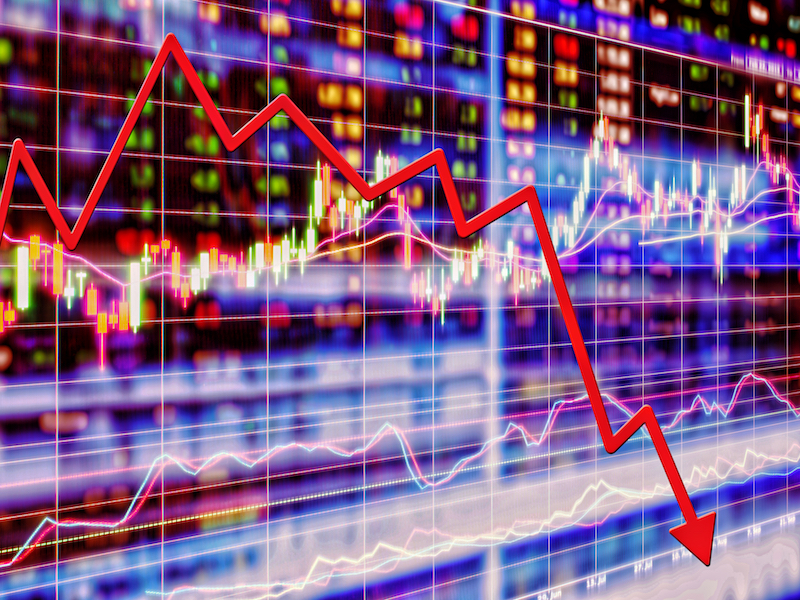Business
World Economy In Limbo

The global market remains in a rut, with no significant recovery in sight.
Larry Summers, the runner-up for the position of Federal Reserve Chair, wants to know what we are going to do about it.
Definitive Global Recovery Is Simply Not Happening
Deflation is no longer just for the Japanese, and interest rates remain low in many countries.
GDP Growth For The January-March Quarter:
- In the U.S.: 0.5 percent
- In the euro zone: 2.2 percent
- In Japan: -1.1 percent
The reintroduction of the term “secular stagnation.”
Larry Summers brings it up and elaborates on it in print, in live speeches, and through online outlets.
The term comes from the Great Depression by way of Alvin Hansen—a Harvard economist—and refers to false, short-lived economic recoveries which cannot meaningfully lower unemployment.
Larry Summers believes that the world’s current economic state may, in fact, be the feared secular stagnation first conceived of during the Great Depression.
He points out that after seven years the world is nowhere near real recovery.
He suggests that interest rates as low as zero are currently too high for demand, and the world is in a kind of bipolar state made up of “bubble” highs followed by recessive lows.
He believes this condition—un-remedied—may last for many years more.
What Larry Summers Believes Is Fundamentally Wrong
Capitalism works when people pay for goods and services and money circulates. There has been in recent years, however, a tendency for people to save rather than spend.

source: tradingeconomics.com
The situation is exacerbated by the wealth gap—much of the world’s money is in the hands of those who have so much that they literally could not spend it all if they tried.
Instead, they hoard it, and it does nothing to fuel the economy.
Their investment opportunities are dampened because popular business models like that of Uber require so little actual investment to start up and run.
He points out that large companies like Apple and Google are pushed into distributing their money to shareholders rather than investing in development.
Loans see less demand because people are saving instead. Furthermore, consumers are simply more cautious about taking on debt in the current economic environment. Both these factors contribute to very low interest rates, which Summers feels are a huge part of the economy’s failure to truly recover.
Furthermore, when people do invest, it is usually by way of taking on debt they cannot possibly pay back, leading to “bubbles” in the market.
What Larry Summers believes must be done about it
First, he is a big proponent of fiscal policy taking up its share of the responsibility.
He supports large projects that force the U.S. Government to invest in infrastructure.
Among his suggestions are government-funded improvements to roads and bridges, education, and programs to combat global warming.
He also wants to adjust the tax system so that lower and middle-class Americans get to keep—and then presumably spend—more of their money.
Lastly, he appeals to banks, who he feels worry too much about their independent problems and not enough about getting together to fix the big picture in America.
Larry Summers on his reception by the Federal Government
Summers does not believe that the Federal Government cares about the economy growing again and job numbers improving.
He does believe that they are too conservative in their ways of thought.
He feels that policy makers are making decisions that contribute to the continuation of secular stagnation.
He also treats the idea of the Federal Government raising interest rates without the demand to support them with mild disbelief, as though they are treating a symptom rather than the underlying disease.
Summers vs. Federal Reserve Chair Janet Yellen
Yellen prefers the patient approach of waiting it out and letting the economy heal itself while the Federal Reserve slowly raises interest rates.
It has been suggested that she cannot afford to theorize the way Summers can while she has to maintain the mechanics of the Federal Open Market Committee without alienating politicians on either side of the aisle.
She also has to worry about potentially spooking the stock market into a death spiral.
She is not calling for stimulus from Congress and has spoken about the idea of secular stagnation without lending it credence.
If Summers is right, we will have to change the way everyone views the economy and its recovery
At the heart of Summers’ argument is the idea that wealth is simply not circulating at the moment, and that this is slowly killing the world’s economy. It’s true that the average citizen cannot force Congress to pass tax laws that favor the middle to lower classes.
Nor can he or she effect a massive redistribution of wealth.
But we can research the candidates we vote for, and we can spend an extra dollar here and there to get cash flow happening again.
Every little bit helps.






1 Comment
The big problem is not the economy. The wealthy 1% of the world population are tying up the world capital reserves. They think richer is better. They couldn’t be more wrong! When they tie up the capital it is no longer available for everyone else to use… I mean come on! How many billionaires are there in the world right now? 1,810 billionaires around the world with a total net worth of almost $6.5 trillion. How many millionaires are there? According to Forbes; There are 1826 billionaires as per Forbes 2015 list. They exclude the monarchs, mafia and illegally wealthy. There are almost 15 million millionaires in the world. U.S. and Canada has more than 5 million millionaires.
THIS IS THE PROBLEM!